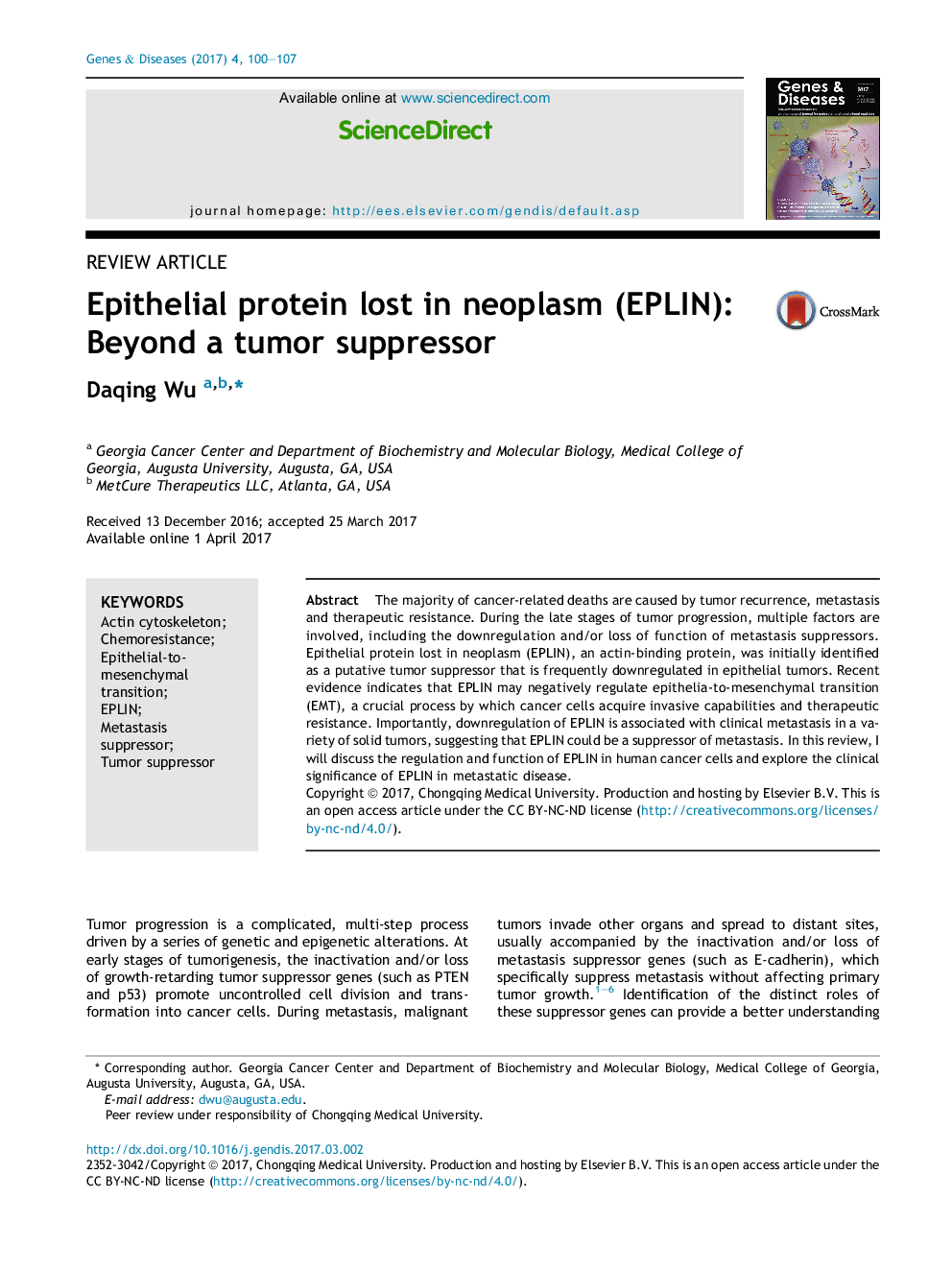| Article ID | Journal | Published Year | Pages | File Type |
|---|---|---|---|---|
| 5532598 | Genes & Diseases | 2017 | 8 Pages |
The majority of cancer-related deaths are caused by tumor recurrence, metastasis and therapeutic resistance. During the late stages of tumor progression, multiple factors are involved, including the downregulation and/or loss of function of metastasis suppressors. Epithelial protein lost in neoplasm (EPLIN), an actin-binding protein, was initially identified as a putative tumor suppressor that is frequently downregulated in epithelial tumors. Recent evidence indicates that EPLIN may negatively regulate epithelia-to-mesenchymal transition (EMT), a crucial process by which cancer cells acquire invasive capabilities and therapeutic resistance. Importantly, downregulation of EPLIN is associated with clinical metastasis in a variety of solid tumors, suggesting that EPLIN could be a suppressor of metastasis. In this review, I will discuss the regulation and function of EPLIN in human cancer cells and explore the clinical significance of EPLIN in metastatic disease.
